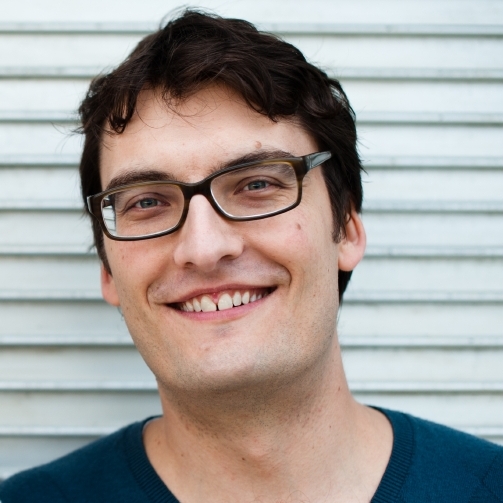Faculty Spotlight: Bob Slevc
December 01, 2014
Maryland Language Science Center

Bob Slevc is an assistant professor in the Department of Psychology as well as a faculty member in NACS and the Language Science Center. Bob’s research centers on language production, language and music, second language acquisition, and aphasia, and he is the director of the Language and Music Cognition Lab Bob came to UMD in 2011, and since then has built research connections with language science faculty and students from across the campus, including from the Departments of Hearing and Speech Sciences, Human Development and Quantitative Methodology, Linguistics, and CASL. Recently, he and Rochelle Newman (HESP) began a project funded by the GRAMMY Foundation (yes, the music people) investigating why musicians have an advantage in learning the sound categories of a second language - leading musicians, for example, to acquire a more native-like phonology. Their studies are examining both the perception of sounds (e.g. learning to understand a speaker with a strong accent) and production of sounds (e.g. adopting the speech patterns of a conversational partner). Another new project with Yasmeen Faroqi Shah (HESP) and DJ Bolger (HDQM) is addressing why some patients with Aphasia show better responses to treatment than others. A series of studies will look at factors including the extent and type of brain damage, but also the influence of "ambient factors" such as patients' level of aerobic activity, musical training, and cognitive factors such as working memory. Graduate students working with Bob in the Language and Music Cognition Lab are leading their own research projects in bilingualism, cognitive control, sentence planning in language production, and the connections between language and music. Alison Shell has been conducting experiments (co-advised by Jared Linck at CASL) looking at bilingual language control which have produced interesting and somewhat unexpected results. When bilinguals switch languages, this has a cognitive cost - they need to select one language and inhibit the other. While looking for evidence that cognitive control of two languages depends on a general inhibitory control capacity which is not specific to language, something surprising emerged: taxing people’s inhibitory control (the ability to suppress a current or planned cognitive process) seemed to make switching between languages easier. This result raises interesting questions about the paradigms researchers use to test these kinds of questions. Shota Momma , a graduate student in the Linguistics Department and a Language Science Fellow, has been working in the Language and Music Cognition Lab for his research rotation. Shota is investigating advance planning in sentence production, and his research has been demonstrating that planning occurs in ways that are constrained by semantic and syntactic factors (such as hierarchical grammatical relationships), rather than linearly through the sentence. Alison, Bob and Shota - PsychoLinguists at Ragnar Relay 2014 Bob recently co-taught a class with Jared Novick (HESP & CASL) on the interplay between general-purpose cognitive systems and language processing, which he says “isn't a very catchy title but turned out to be a pretty interesting class”. (You can read more about how the class inspired SLA graduate student Yuichi Suzuki’s research here ). In Spring 2015, he will be teaching an undergraduate course on the Psychology of Language (PSYC 442) and a graduate seminar on links between language and music (PSYC 678). If all of that wasn't enough, Bob was brave enough to join the PsychoLinguists Ragnar Relay running team this year, and (apparently) enjoyed it. He says: “For those of you considering this, I can only say that there's nothing quite like a 200 mile relay race, combined with a two-day road trip, to get to know your fellow language science colleagues. It turns out that the language science community is just as supportive in terms of running as they are in research, which makes both a fun experience.”



